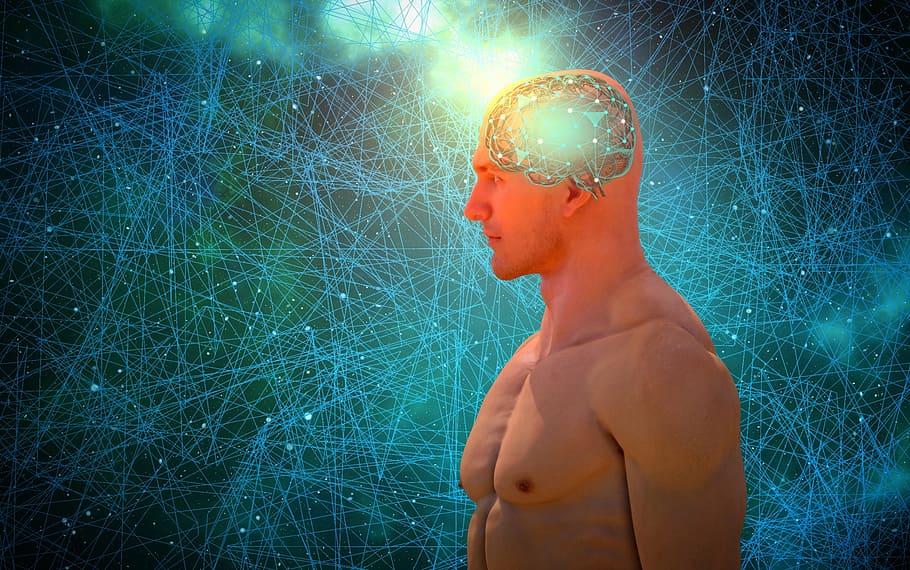
Artificial intelligence, a field at the forefront of technological advancement, has witnessed a remarkable evolution throughout the years. From its humble beginnings as a theoretical concept to its current omnipresence in our daily lives, AI has transformed the way we live, work, and interact with the world around us. The rapid pace of development has been nothing short of astonishing, pushing the boundaries of what was once thought to be mere science fiction. As AI continues to evolve, humanity stands on the brink of a future where machines are capable of advanced cognitive abilities, potentially changing the very fabric of society as we know it.
In its essence, artificial intelligence refers to the creation of intelligent machines that can simulate human intelligence and perform tasks that typically require human thought. The journey of AI began decades ago, with pioneers envisioning a world where machines could think, learn, and solve problems independently. However, progress in the early years was sluggish, hindered by technological constraints and limited computational power. It was not until the rapid advancements in computing, data collection, and algorithm design that the true potential of AI began to be realized.
Today, artificial intelligence has permeated every aspect of our lives, often without us even noticing. From voice assistants, such as Siri and Alexa, to personalized recommendation systems in e-commerce platforms, AI has become an integral part of our digital existence. It has revolutionized industries like healthcare, finance, and transportation, offering new possibilities for diagnosis, analysis, and automation. The capabilities of AI now extend beyond human capabilities, with machines surpassing us in tasks such as image recognition, language translation, and even strategic decision-making.
However, the evolution of AI does not stop here. Researchers and scientists continue to push the boundaries, striving to create intelligent systems that exhibit not only deep learning but also common sense reasoning and emotional intelligence. The cognitive abilities of AI are expanding, giving rise to innovative applications in areas like robotics, virtual reality, and natural language processing. The future of artificial intelligence holds the promise of further breakthroughs, as well as new challenges and ethical dilemmas that we must reckon with as a society.
In summary, the evolution of artificial intelligence has been a remarkable journey from theoretical concept to real-world application. With each passing year, AI continues to shape our lives in unexpected and transformative ways. As machines become more intelligent and sophisticated, the future of AI holds immense potential for innovation and progress. However, it is essential that we navigate the path ahead with careful consideration, ensuring that the benefits of AI are harnessed for the greater good while safeguarding against potential risks. The unfolding story of artificial intelligence promises a future where humans and machines coexist and thrive, forever changing the way we perceive and interact with the world around us.
Milestones in AI Development
Birth of AI:
The journey of artificial intelligence began with the idea that machines could be designed to mimic human intelligence. This concept took shape in 1956 when the field of AI was officially established. Pioneers like John McCarthy, Marvin Minsky, Allen Newell, and Herbert Simon laid the foundation for AI research, opening up new possibilities for the development of intelligent machines.
Early AI Systems:
In the early stages of AI development, researchers focused on creating expert systems capable of solving complex problems. One remarkable achievement during this time was the development of the Logic Theorist in 1956 by Allen Newell and Herbert Simon. This program, which could prove mathematical theorems, demonstrated the potential of AI by showcasing how machines could perform tasks that typically require human intelligence.
The Rise of Machine Learning:
Advancements in machine learning became a defining milestone in AI development. In the 1990s, machine learning algorithms started gaining popularity, allowing computers to learn and improve from data without explicitly being programmed. This breakthrough led to the development of systems capable of recognizing patterns, understanding speech, and even playing strategic games like chess and Go at a highly proficient level. The rise of machine learning paved the way for remarkable advancements in various AI applications.
Current Applications of AI
Artificial Intelligence (AI) has made significant advancements in recent years, giving rise to numerous applications across various industries. From healthcare to finance, AI has been transforming the way we live and work. In this section, we will explore some of the current applications of AI that are revolutionizing different sectors.
Healthcare:
AI has emerged as a powerful tool in healthcare, enabling more accurate diagnoses and streamlined patient care. Machine learning algorithms have been developed to analyze medical data and assist in detecting diseases such as cancer at an early stage. Additionally, AI-powered robots are being used to perform complex surgeries with enhanced precision, reducing the risk of human error.Finance:
Get The Best Price
The financial industry has embraced AI to improve efficiency, reduce costs, and enhance decision-making processes. AI algorithms can analyze vast amounts of financial data in real-time, enabling faster and more accurate predictions in stock trading and investment management. Furthermore, AI-powered chatbots are being employed by banks and financial institutions to provide customer support, improving the overall user experience.Transportation:
AI has had a significant impact on the transportation sector, particularly with the advent of autonomous vehicles. Self-driving cars, empowered by AI technologies such as computer vision and deep learning, have the potential to revolutionize the way we commute. They can reduce accidents, optimize traffic flow, and improve fuel efficiency, leading to a safer and more sustainable transportation system.
These are just a few examples of the current applications of AI, highlighting its diverse range of uses in various industries. As technology continues to advance, we can expect AI to play an even more prominent role in shaping our future.
Future Implications and Possibilities
The rapid advancements in artificial intelligence hold immense potential for shaping our future. As AI continues to evolve, we can anticipate significant implications across various sectors and industries.
In the realm of healthcare, artificial intelligence can revolutionize diagnosis and treatment methods. With sophisticated algorithms and machine learning capabilities, AI systems have the potential to analyze vast amounts of medical data, assisting doctors in making accurate diagnoses and suggesting tailored treatment plans. This could lead to more efficient healthcare delivery, improved patient outcomes, and ultimately, the saving of countless lives.
The field of transportation is another area that stands to benefit from the evolution of artificial intelligence. The development of autonomous vehicles powered by AI technology has the potential to drastically transform urban mobility. Self-driving cars could enhance road safety, reduce traffic congestion, and even lead to more sustainable transportation systems. Additionally, AI can enable real-time data analysis, optimizing public transportation routes, further improving efficiency and reducing commuting times.
Artificial intelligence also holds promise in the arena of environmental sustainability. As we strive to address pressing global challenges such as climate change, AI can play a vital role in monitoring and managing our natural resources. By analyzing environmental data and patterns, AI systems can help identify potential risks, predict natural disasters, and enable better strategies for conservation efforts. This fusion of technology and environmental stewardship can pave the way towards a greener and more sustainable future for generations to come.
In conclusion, the future implications of artificial intelligence are vast and transformative. From revolutionizing healthcare and transportation to contributing to environmental sustainability, AI has the potential to shape a future where efficiency, accuracy, and sustainability are at the forefront. As research and development in this field continue to progress, we must ensure that these advancements are channeled ethically and responsibly for the betterment of society as a whole.
